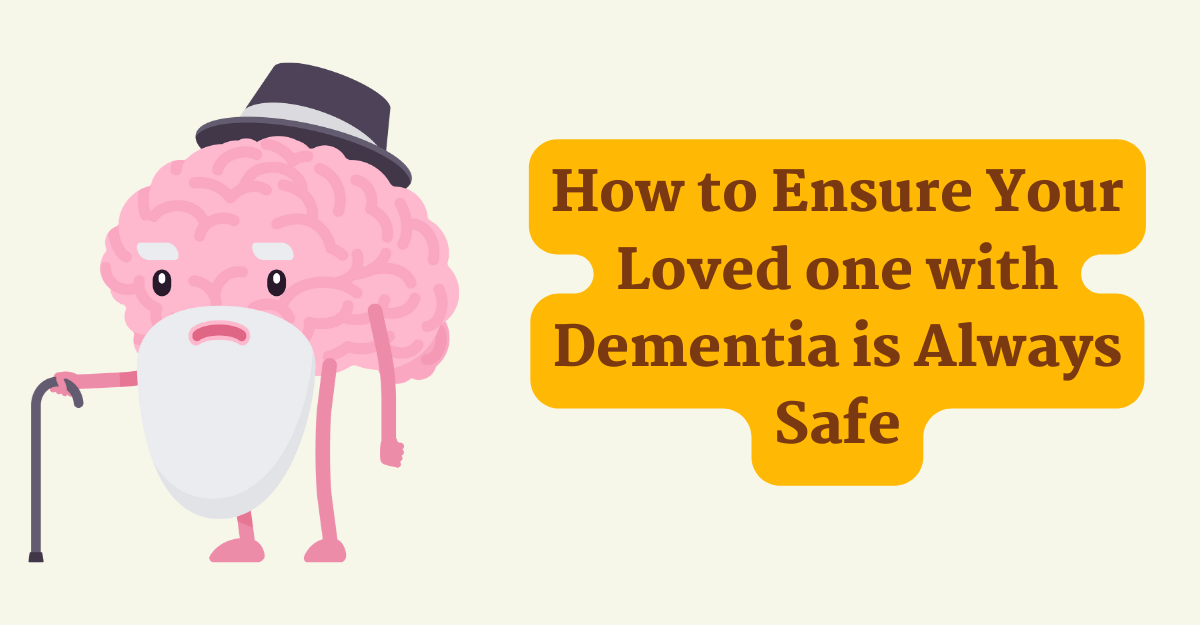
How to Ensure Your Loved one with Dementia is Always Safe
Providing support to a family member experiencing dementia requires a compassionate, patient, and steadfast dedication to their welfare. As dementia advances, the complexities of safeguarding your loved one’s safety become more intricate. Memory loss, disorientation, and changes in judgment can make everyday tasks a potential source of concern.
Unfortunately, dementia can compromise an individual’s capacity to ensure their safety consistently. Someone with dementia might neglect to take prescribed medications, struggle to find their way home, or encounter difficulties while driving. Whatever the task, dementia affects one’s ability to maintain safety. But you can keep your loved one safe by considering the following tips.
Create a Safe and Supportive Home Environment
Start by evaluating your home environment to enhance home safety for individuals with dementia. Remove potential hazards such as loose rugs, clutter, or furniture that could obstruct pathways. Install handrails in key areas, particularly bathrooms and stairwells, to provide additional support.
Ensure good lighting throughout the house to reduce confusion and prevent falls. Consider installing locks or alarms on doors and windows to deter wandering.
Establish a Consistent Routine
Individuals with dementia often thrive on routine. Establishing a daily schedule can help reduce anxiety and confusion. Ensure that meals, medication, and activities activities occur at the same time daily. Use visual cues, like calendars or clocks, to help your loved one understand the passage of time. Consistency in routine provides security and predictability, which benefits those with dementia.
Implement Technology for Safety
Embrace technology to enhance the safety of your loved one. GPS tracking devices can be discreetly worn, helping you locate them if they wander. Smart home technology can also monitor their activities and alert them to unusual behavior. Consider installing motion sensors that can send notifications if your loved one gets out of bed during the night. These technological tools can offer peace of mind while respecting their independence.
Explore Dementia Care Homes When Necessary
As dementia advances, the care needs may surpass the capacity to provide adequate support at home. Transitioning your loved one to a dementia care facility is a significant choice that demands careful and thoughtful consideration.
Research and visit different dementia care facilities to find one that aligns with your loved one’s needs and preferences. Dementia care homes are equipped with trained staff and specialized programs to support individuals with cognitive impairments. Before making a decision, involve your loved one in discussions and consider their comfort and familiarity with the new environment.
Regularly Review Medications
Medication management is crucial for individuals with dementia. Ensure that medications are organized, clearly labeled, and taken as prescribed. Regularly review medications with your loved one’s healthcare provider to identify potential side effects or interactions.
Consider using a pill organizer or enlisting the help of a caregiver to ensure that the correct medications are taken at the right times. Proper medication management is vital for both physical and cognitive well-being.
Supporting a family member with dementia involves adopting a comprehensive strategy including the steps mentioned above. By integrating these approaches, you can establish a nurturing and safe setting that improves your loved one’s quality of life and offers you peace of mind.






